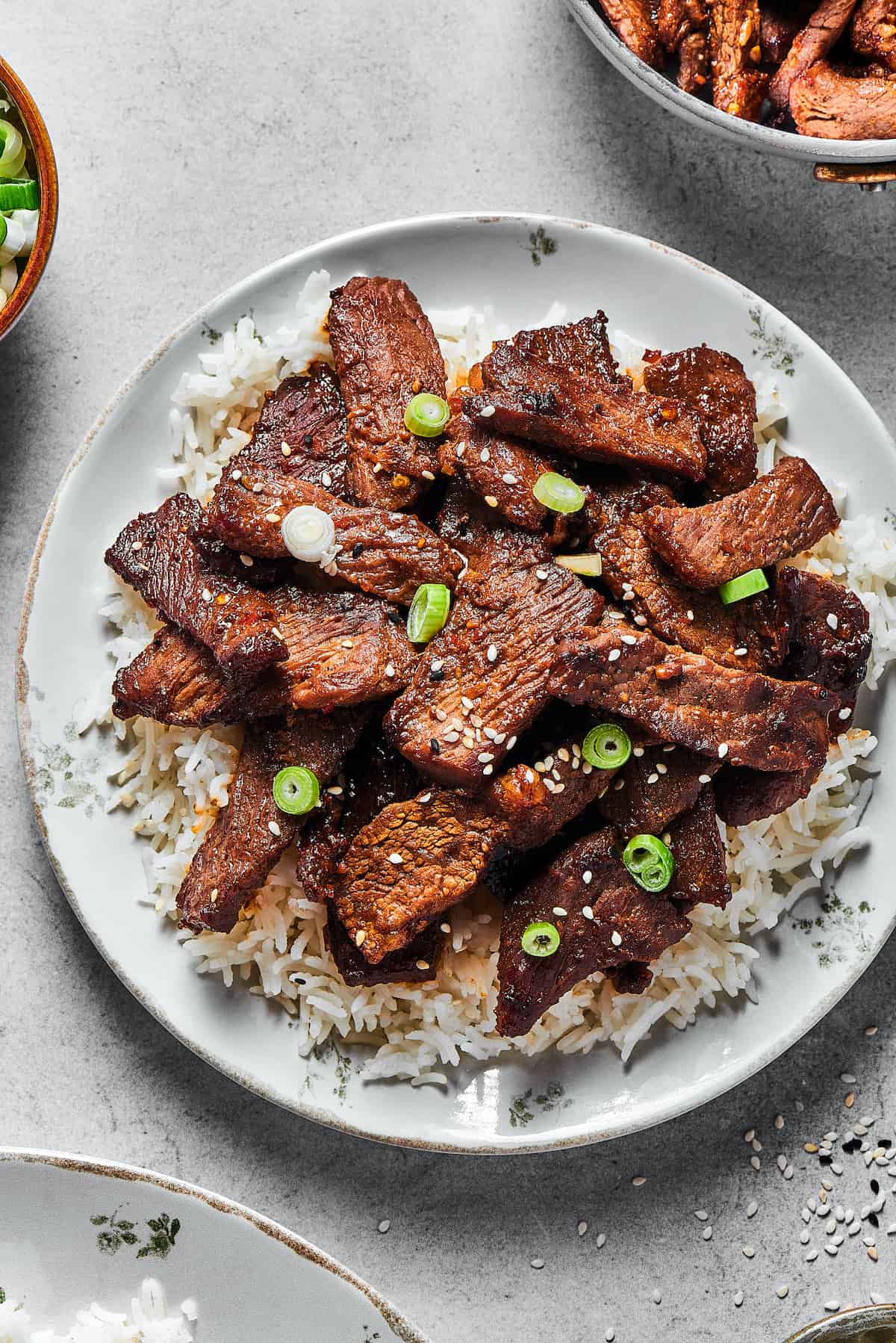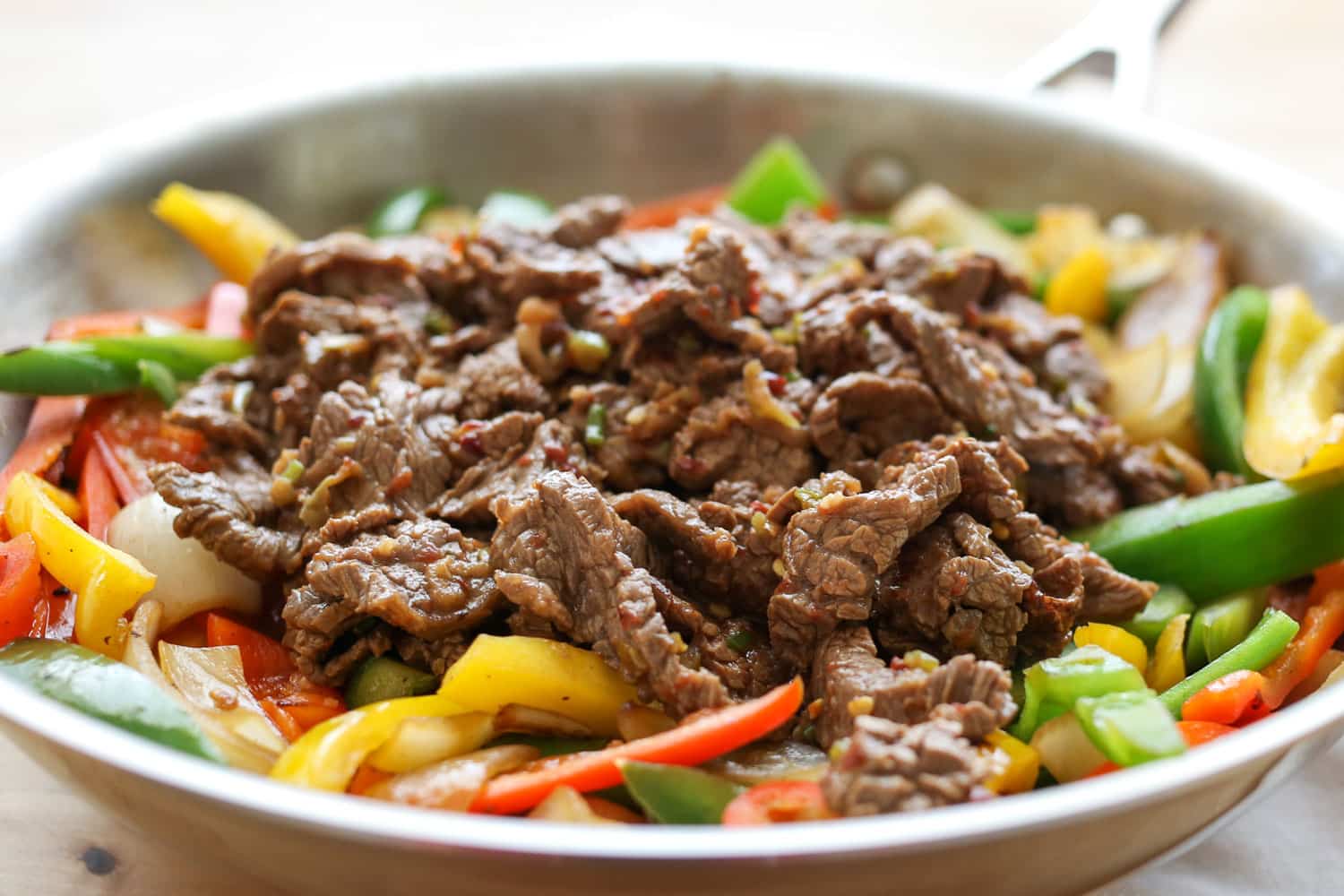Have you ever found yourself staring at a menu, perhaps at a Korean restaurant, and feeling a little unsure about how to say certain dishes? It happens to a lot of people, so it's really quite common. One dish that often leaves folks wondering is bulgogi. This wonderful Korean meal, known for its sweet and savory marinated meat, is a favorite for so many. Getting its name right can truly make your dining experience even better, and it shows a nice bit of respect for the food's origin.
Knowing how to say "bulgogi" correctly is more than just sounding good; it's about connecting with a rich food culture. When you pronounce it with confidence, it feels a bit like you're unlocking a secret handshake with the culinary traditions of Korea. You might even find that restaurant staff appreciate the effort, and it just makes everything feel more natural, you know?
This guide is here to help you master the pronunciation of bulgogi. We'll break down the sounds, drawing on insights from resources like "My text," which offers great ways to learn how to say words in English, French, and other languages, including Korean names. You'll learn the simple steps to say this popular dish just right, so you can order it with a smile and a clear voice, perhaps even today as people everywhere are enjoying this dish more and more.
Table of Contents
- Understanding Bulgogi: What It Means
- The Key to Bulgogi Pronunciation: Breaking It Down
- Why Correct Pronunciation Matters
- Practice Makes Perfect: Tips for Saying Bulgogi with Ease
- Frequently Asked Questions About Bulgogi Pronunciation
Understanding Bulgogi: What It Means
Bulgogi is a famous Korean dish, and its name actually tells you a lot about it. The word itself comes from Korean, where "bul" means fire and "gogi" means meat. So, in a way, bulgogi literally means "fire meat." This name makes a lot of sense when you think about how it's traditionally cooked, often over an open flame or on a grill, giving it that lovely, slightly smoky taste. It's a very descriptive name, so it is.
This dish usually features thinly sliced beef or sometimes pork, marinated in a flavorful mix of soy sauce, sugar, sesame oil, garlic, and other seasonings. It's truly a delight for the taste buds, offering a beautiful balance of sweet and savory notes. Knowing what the name means can help you remember how to say it, too, as you connect the sounds to the cooking method and ingredients.
The Key to Bulgogi Pronunciation: Breaking It Down
Learning to say bulgogi correctly isn't hard once you break it into smaller parts. "My text" explains that you're in the right place to learn how to say this word, and it gives some very helpful clues. It's about getting comfortable with each syllable, and then putting them all together smoothly. We'll go through each part, so you can feel more confident saying it out loud, which is really what it's all about.
The "Bul" Sound: Like "Cool"
The first part of bulgogi is "bul." According to "My text," the "bul" sound is quite similar to the "ool" sound you hear in the English word "cool." Think about how your mouth moves when you say "cool." Your lips round a bit, and the sound comes from the back of your throat. It's a very soft, rounded sound, so it is.
To practice, try saying "cool" a few times, really focusing on that "ool" part. Then, replace the "c" with a "b" sound. You're aiming for something that sounds like "bool," with that same relaxed mouth shape. It's not a sharp "bull" like the animal, but a gentle, almost flowing "bool." This is a common mistake people make, so getting this part right is a big step.
The "u" in "bul" is pronounced with a relaxed mouth, not too tight or wide. It's a simple, straightforward sound once you get the hang of it. Just imagine you're saying "oo" as in "moon" but a bit shorter, and you're pretty much there. It's a rather soft opening sound for the word, too.
The "Gogi" Sound: Getting It Right
Now, let's move on to the second part: "gogi." "My text" tells us that this sound also has a particular way it's said. The "go" part is like the beginning of the English word "go," straightforward and clear. Your tongue should be near the back of your mouth, and the sound should come out easily. There's no trick to this first syllable, which is nice.
The "gi" part is similar to the "gee" sound in the word "geese." It's a soft "g" followed by a short "ee" sound. So, when you put it together, you have "go-gee." It flows quite naturally, really. Just remember to keep the "g" soft, not a hard "j" sound, which can sometimes happen when people are trying to say new words.
When you combine "go" and "gi," think about a gentle, flowing rhythm. It's not "go-GI" with a strong emphasis on the second part, but more evenly balanced. The two syllables should sound like they belong together, like two parts of a single, smooth word. This makes it sound much more authentic, you know?
The 'B' That Sounds Like a 'P'
Here's a very interesting point from "My text" that helps a lot with bulgogi pronunciation: "In Korean, the b is often a sound that is pronounced similarly to a p, as is the case with bulgogi." This is a key insight for many English speakers. When you see the "b" at the start of "bulgogi," your instinct might be to make a strong "b" sound, like in "ball."
However, for bulgogi, the initial "b" sound is softer, almost like a very gentle "p." It's not a hard, explosive "p" like in "pat," but more like a soft breathy "p." Imagine you're saying "pool" but with less force, just a slight puff of air. This subtle difference makes a big impact on how authentic your pronunciation sounds, so it truly does.
Try saying "pool" and then soften the "p" even more, almost letting it fade into the "ool" sound. That's the kind of "b" sound you're aiming for in "bulgogi." It's a common feature in Korean pronunciation, and once you get used to it, you'll start noticing it in other Korean words too. This little tip can really make a difference, and it's something that often surprises people learning the word.
Why Correct Pronunciation Matters
Saying "bulgogi" the right way goes beyond just sounding good; it shows respect for the culture it comes from. When you make an effort to pronounce foreign words correctly, it communicates a genuine interest and appreciation for that culture. It's a small gesture, but it can mean a lot to native speakers or restaurant owners, too. It builds a bit of a connection, you see.
Think about it: when you order a dish, and you say its name clearly and correctly, it helps the person taking your order understand you better. There's less chance of confusion, and the whole experience feels smoother. Plus, it just feels good to know you're saying something accurately. It's a small victory for your language skills, and that's always a nice feeling, isn't it?
Moreover, getting the pronunciation right can make you feel more confident when discussing food with friends or when traveling. It adds to your overall experience and enjoyment of different cuisines. Knowing how to say a dish's name correctly is like having a little key that unlocks a deeper appreciation for the food and its background. It's a very rewarding thing to learn, so it is.
Practice Makes Perfect: Tips for Saying Bulgogi with Ease
Like anything new, practicing helps a lot when it comes to pronunciation. You can start by saying "bulgogi" slowly, focusing on each sound we just talked about. Break it down: "bool" then "go" then "gee." Say them separately a few times, getting comfortable with each part. Then, try putting them together, slowly at first, and then a little faster, which is what helps the most.
One great way to practice is to listen to native speakers. "My text" mentions that you can learn how to say bulgogi with American pronunciation guides and also with native Korean pronunciation. Look for audio or video tutorials online. Listen carefully to the rhythm and the subtle sounds. Try to imitate what you hear, even if it feels a bit awkward at first. You'll get better with each try, you know.
Don't be afraid to say it out loud, even if you're just by yourself. Repetition helps your mouth and tongue get used to making the new sounds. You can even record yourself saying it and then compare it to an audio guide. This helps you hear where you might need to adjust. The more you practice, the more natural it will feel, and soon you'll be saying "bulgogi" like a pro. For more insights into Korean culture and food, you might want to visit the Korea Tourism Organization website.
You can also learn more about Korean cuisine on our site, and perhaps find other dishes to try pronouncing correctly. There's a whole world of delicious food out there, and saying their names with confidence makes the experience even better. Just keep practicing, and you'll do great. You can also link to this page our Korean food section for more amazing information.
Frequently Asked Questions About Bulgogi Pronunciation
Many people have similar questions when they're trying to learn how to say "bulgogi." Here are some common ones, with answers to help clear things up, so they are.
Is the 'b' in bulgogi pronounced like a 'p'?
Yes, in Korean, the initial 'b' sound in words like bulgogi is often softer, very much like a gentle 'p' sound. It's not a hard, explosive 'p' you might be used to in English, but more of a light puff of air. This is a common feature in Korean language sounds, and getting it right makes your pronunciation sound more authentic, you know?
How do I pronounce the 'u' in bulgogi?
The 'u' sound in "bulgogi" is similar to the "oo" sound in the English word "cool." It's a rounded, relaxed sound, not a sharp or tense one. Think of it as the "ool" part of "cool." This helps you get the first syllable, "bul," sounding just right, which is a very important part of the word.
What does bulgogi mean?
Bulgogi is a Korean word that literally means "fire meat." "Bul" translates to fire, and "gogi" means meat. This name reflects how the dish is traditionally cooked, often grilled over an open flame, giving it a distinct, delicious flavor. Knowing the meaning can sometimes help you remember how to say it, too, which is kind of neat.



